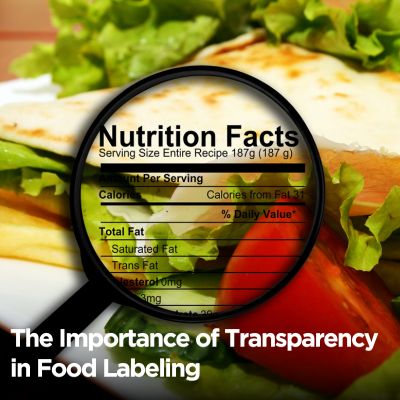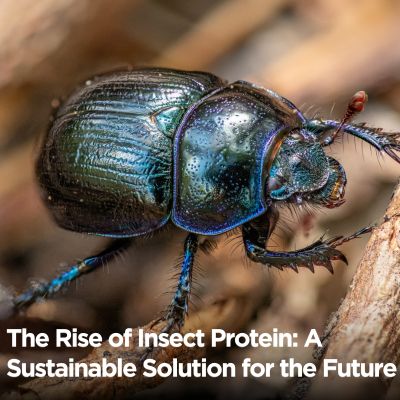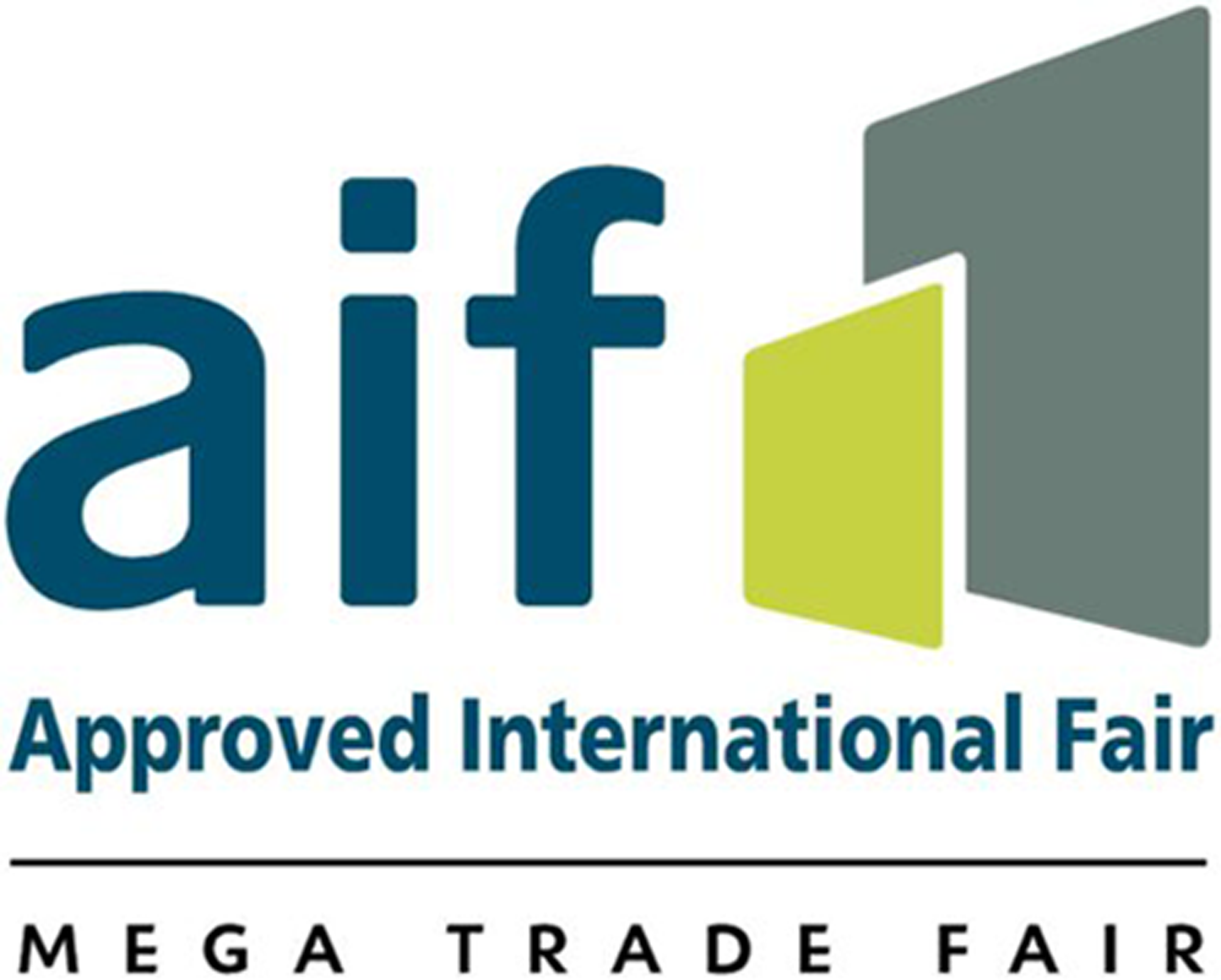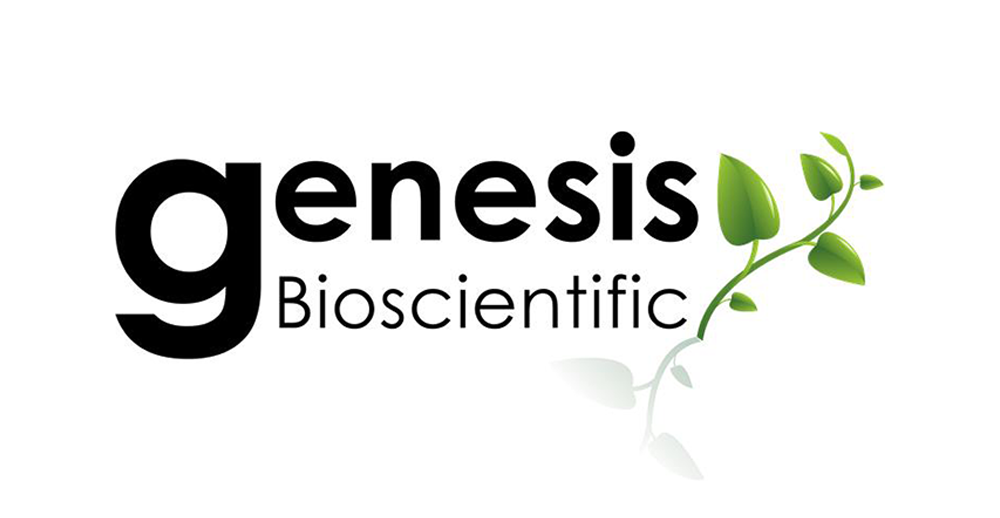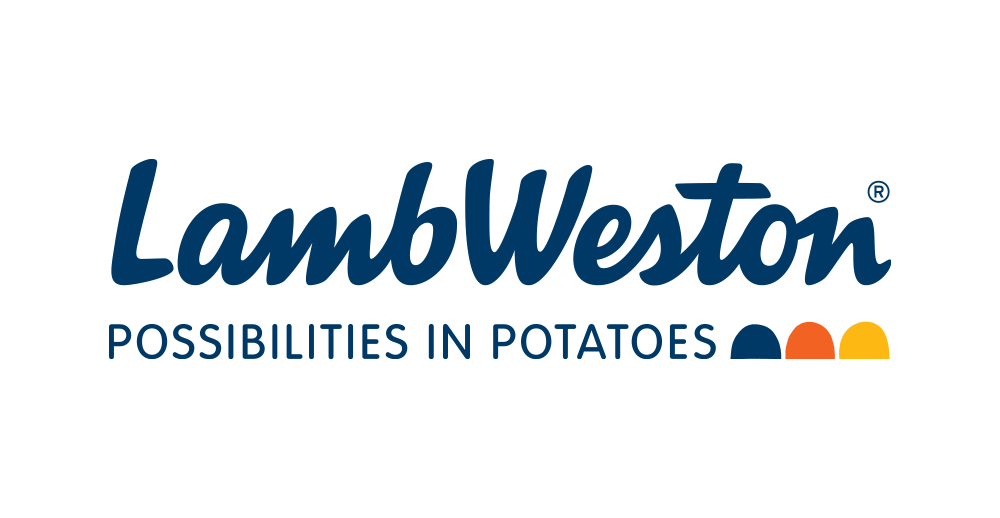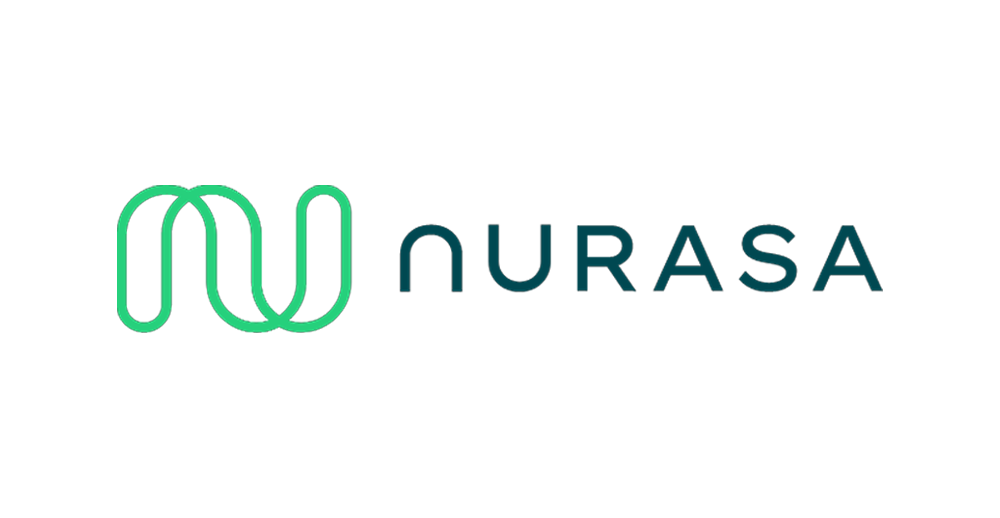Halal meat is not just a dietary preference but also a choice that aligns with cultural, religious, and ethical values.
“Halal” is an Arabic word that translates to “permissible,” which denotes that consuming such meat is acceptable or lawful under Islamic law. Halal meat does not include pork or alcohol of any kind.
With the growth of the Muslim consumer market and rising health concerns, the demand for the halal food market is growing exponentially.
In this blog, we will explore the benefits of Halal meat and everything you need to know.
Health Benefits of Halal Meat
Halal-reared animals must be raised in a highly hygienic and humane setting. A Halal animal is always fed on vegetarian food and grass. Thus, halal food is rich in vitamins, omega-3 fat, and antioxidants, which are healthy for the human body.
Also, the meat sector trends indicate several Halal meat benefits, contributing to safer meat consumption. When consuming Halal-certified meat, you’re assured of a perfectly safe product. Moreover, Halal meat has high protein content, vitamins and minerals, an amino acid profile, low additives and preservatives, and saturated fat control.
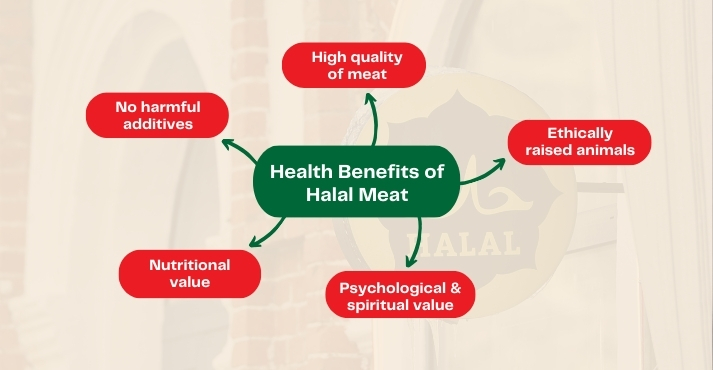
Let’s explore some key benefits that Halal meat offers.
1. Free from Harmful Additives and Contaminants
Halal meat is regulated by strict dietary laws ensuring the animals are raised and processed without harmful chemicals, antibiotics, or hormones. This careful oversight minimizes exposure to substances that could negatively impact health. According to recent research, excessive use of antibiotics in meat can contribute to antibiotic-resistant bacteria, posing risks to human health. Additionally, halal practices require that the meat is thoroughly cleaned, ensuring no harmful contaminants remain.
The prohibition of certain additives, such as preservatives derived from non-halal sources, further ensures purity. A 2020 report by the Food Safety Authority of Ireland noted that chemical residues in meat can affect human health if not adequately regulated. Halal certification processes reduce such risks, offering consumers greater confidence in the safety and integrity of their meat.
2. Higher Quality of Meat
Halal slaughter involves draining the majority of the animal’s blood, significantly improving meat quality. Blood is a medium for bacterial growth and carries toxins, so its removal ensures the meat is fresher and safer. Research published in Meat Science Journal revealed that blood in goat meat could increase microbial activity, reducing shelf life and quality.
Due to this process, halal meat taste is cleaner and less metallic. According to a report by the International Halal Integrity Alliance, properly bled meat stays fresher longer, contributing to higher nutritional value. Additionally, the absence of blood lowers the risk of contamination by pathogens like Salmonella and E. coli, which are more prevalent in improperly handled meats.
This method aligns with global food safety standards, providing consumers with higher-quality, nutrient-dense meat free from microbial risks.
3. Ethically Raised Animals Promote Healthier Meat
Halal practices emphasize the ethical treatment of animals, ensuring they are raised in humane conditions and fed a natural, clean diet. Research from the University of Bristol highlights that animals raised in stress-free environments produce better quality meat, as stress can elevate cortisol levels, which negatively affects meat tenderness and taste.
By requiring ethical treatment, halal regulations improve animal welfare and indirectly promote the production of healthier meat. A report by the Food and Agriculture Organization (FAO) also underscores that the quality of feed and the living conditions of animals impact the nutritional value of their meat.
This focus on humane practices reduces stress-related toxins in the meat, providing a product that is not only healthier but also aligns with ethical standards valued by many health-conscious consumers.
4. Higher Nutritional Value
Halal meat is naturally rich in essential nutrients like high-quality proteins, iron, and B vitamins, which are vital for muscle growth, brain function, and overall health. According to the United States Department of Agriculture (USDA), a single serving of lean red meat provides nearly 50% of the recommended daily intake of protein and a significant amount of zinc, which supports the immune system.
The halal preparation process also helps retain these nutrients. A study published in the Journal of Animal Science and Technology found that methods involving careful slaughtering and minimal processing preserve the meat’s natural vitamins and minerals, making it nutritionally superior to processed alternatives.
Consumers seeking a balanced diet benefit from halal meat’s high nutrient density, which supports energy levels, red blood cell production, and general well-being.
5. Psychological and Spiritual Benefits
For those adhering to halal dietary principles, consuming halal meat offers more than just physical nourishment; it provides psychological and spiritual comfort. Knowing that the meat is ethically sourced and slaughtered according to Islamic guidelines creates a sense of peace and fulfillment. This sense of alignment with personal values has been linked to reduced stress and improved mental health, according to a study published in the Journal of Religion and Health.
Additionally, the ethical and hygienic standards of halal meat appeal to health-conscious consumers, irrespective of religious beliefs. A report by Straits Research notes that as halal food becomes more accessible, non-Muslim consumers are seeking it out due to its perceived quality and hygiene standards. This widespread trust highlights how halal practices resonate beyond spiritual benefits, offering a holistic sense of well-being.
Religious Significance of Halal Meat
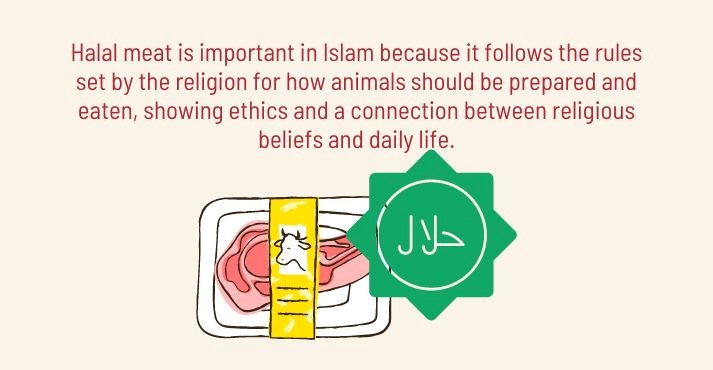
Many people choose Halal meat because of their religious beliefs. To receive the Halal Standard, a meat product must be from an acceptable source and slaughtered according to these laws and regulations. Islamic law requires animals to be treated well, eat natural food, and not be given hormones or antibiotics.
Compliance with Islamic Dietary Laws
Halal meat is prepared according to Islamic dietary laws, which require that the animal be slaughtered in a specific way and that it be free from certain impurities. The slaughter must involve a Muslim invoking Allah’s name, emphasizing purity and religious compliance.
Consuming Halal meat not only fulfills religious obligations but also serves as an expression of devotion, reinforcing the significance of aligning daily choices with the spiritual principles outlined in Islam.
This means Halal meat follows these rules to ensure it’s produced in a way that aligns with religious values and is considered more ethical and humane.
Spiritual and Ethical Considerations
Halal meat is allowed because it benefits the mind and body. Consuming food aligned with religious principles offers spiritual benefits by developing a sense of mindfulness and gratitude. It transforms daily meals into acts of devotion, promoting a connection between physical sustenance and spiritual nourishment.
The ethical considerations related to treating animals in Halal practices include
- Humane Slaughter: Ethical consideration is given to humane animal slaughter in Halal practices, ensuring swift and minimal suffering during the process.
- Stress-Free Handling: Halal practices emphasize stress-free handling of animals before slaughter.
- Natural Feed: Animals in Halal practices are often provided a natural diet, prioritizing the well-being and health of the animals.
- Avoidance of Hormones: Ethical concerns include the avoidance of hormonal growth promoters and unaltered animal development.
- Free-Range Conditions: Halal practices often involve providing animals with free-range conditions, allowing them to express natural behaviors and ensuring a higher quality of life.
Nutritional Value of Halal Meat
Now that we know that Halal food offers several health and religious benefits, the question is: why is Halal meat better in terms of nutritional value?
As people become more conscientious of their eating habits, the concerns regarding the nutritional value offered by meat are increasing.
The improved lipid profile observed in Halal meat may positively influence weight, muscle mass, body fat, and antioxidant status. These effects occur without changes to gut microbiota and levels of biomarkers like glucose, insulin, or iron.
Leaner Meat
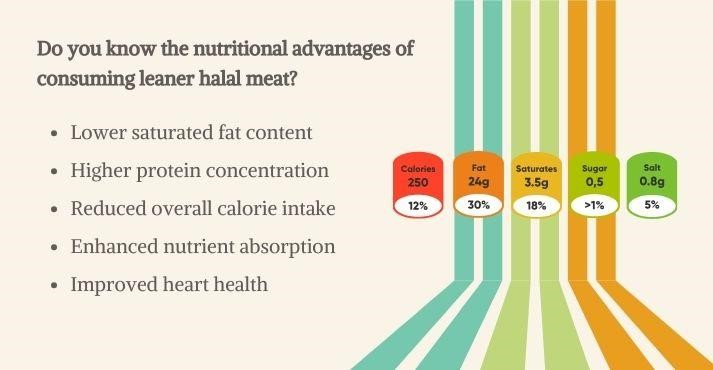
So, how is Halal meat healthy when consumed in its leaner form? With the principles of balanced nutrition, Halal meat provides essential nutrients without compromising on taste. This leaner profile contributes to a more health-conscious and sustainable dietary choice.
The nutritional advantages of consuming Halal meat in its leaner composition are:
- Lower saturated fat content
- Higher protein concentration
- Reduced overall calorie intake
- Enhanced nutrient absorption
- Improved heart health
The leaner composition of Halal meat has lower saturated fat, and it supports cardiovascular health by reducing cholesterol intake. The higher protein concentration promotes muscle development and satiety, contributing to weight management.
A reduced calorie intake supports weight control and prevents excess calorie-related health issues. The enhanced nutrient absorption ensures efficient utilization of essential vitamins and minerals.
Preservative-Free
Still thinking about why is Halal food good for you?
Halal meat is free from preservatives commonly found in conventional meats, aligning with Islamic dietary principles. The absence of these additives, such as certain artificial colors and flavors, enhances the purity of the meat. It appeals to health-conscious consumers seeking natural and minimally processed food options.
Here are potential health benefits related to preservative-free consumption
- Reduced Allergen Exposure: Preservative-free consumption may lower exposure to allergens.
- Digestive Health: Avoiding preservatives can support digestive health by reducing the risk of irritation or sensitivity reactions.
- Better Cardiovascular Health: Contribute to better cardiovascular health by minimizing intake of certain additives.
- Improved Metabolic Function: Positively impacts metabolic function and may help maintain a healthier weight.
- Enhanced Nutrient Intake: More natural and nutrient-dense options, promoting overall well-being and nutritional balance.
Cultural and Community Impact of Halal Meat
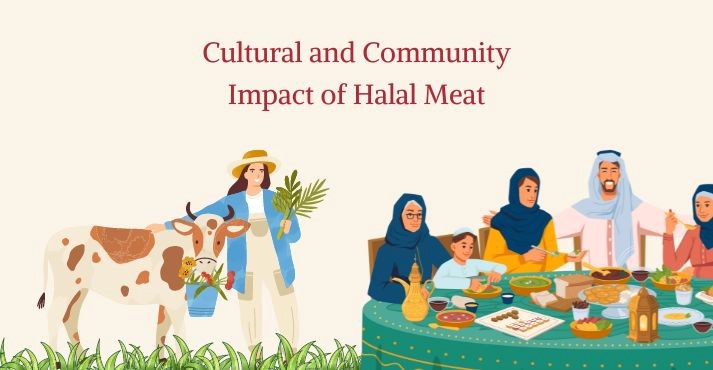
According to the cultural aspect, Halal foods are lawful and permitted to be eaten by those observing Islamic teachings. Muslims are not allowed to consume foods or beverages that are Haram or forbidden. With the growing prominence, Halal meat impacts consumers, leading to increased consumption and support for local businesses.
Preservation of Cultural Identity
Halal meat is key to preserving cultural and religious identity by connecting communities and sustaining traditions. Compliance with Islamic dietary laws creates a unified approach, strengthening the bond among believers.
The practice of consuming Halal meat becomes a cultural marker, restating the sense of belonging and continuity with religious values. By consuming Halal meat, individuals nourish their bodies and fulfill their spiritual and cultural duties that define their collective identity.
Support for Local Businesses
Choosing Halal meat supports local Halal butchers and businesses, creating job opportunities, sustained supply chain networks, and regional economic growth. Jobs are created or retained, the community gains revenue, and families and cultures are supported.
This ensures the availability of Halal options and promotes a community where cultural traditions are upheld. Individuals strengthen the local economy through conscious choices and keep business booming within their region.
Here is the economic impact on the local community:
- Job Creation: Supports local employment opportunities.
- Economic Growth: Contributes to the financial health of the local economy.
- Community Development: Strengthens the economic infrastructure of the community.
- Cultural Preservation: Helps sustain businesses aligned with cultural and religious values.
- Small Business Support: Leads to the success and continuity of local Halal meat shops.
Environmental Considerations Regarding Halal Meat
Halal meat production can have environmentally friendly aspects, as it emphasizes the humane and ethical treatment of animals, which often translates to more sustainable farming practices.
Halal requirements, such as providing animals with natural feed and avoiding certain additives, contribute to reduced environmental impact.
Additionally, the absence of intensive farming methods, common in conventional meat production, can result in lower pollution and resource depletion. Moreover, Halal meat production can lessen its ecological footprint, promoting a more environmentally conscious approach to meat consumption.
The sustainable practices associated with Halal agriculture include:
- Natural Feed: Emphasis on providing animals with a natural and balanced diet.
- Reduced Chemical Additives: Avoid certain additives and hormones in animal husbandry.
- Humane Treatment: Practices promoting stress-free and ethical treatment of animals.
- Limited Antibiotic Use: Reduced reliance on antibiotics compared to intensive farming methods.
- Avoidance of Intensive Farming: Less use of intensive farming practices that can contribute to environmental degradation.
Accessibility and Inclusivity
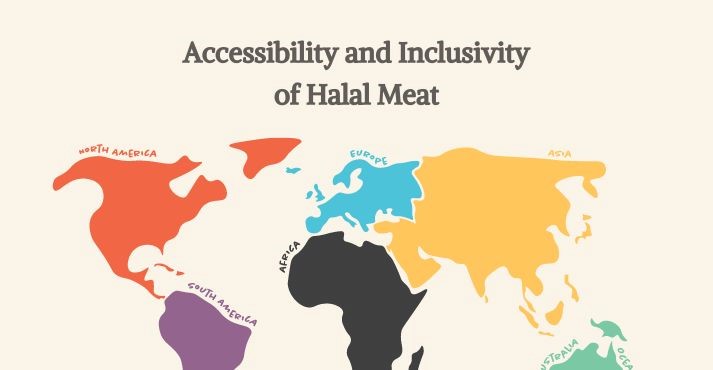
Accessibility and inclusivity of Halal meat worldwide cater to diverse communities, and even non-Muslims are seeking this option rapidly due to health consciousness and dietary changes.
Local markets and businesses contribute to regions’ cultural and culinary diversity by providing Halal meat, creating a more inclusive environment for consumers from different backgrounds.
Let’s explore the accessibility of Halal meat in different regions of the world.
Asia
Halal meat is widely available in Asia, given the prevalence of Islamic communities. Singapore’s halal food sector is booming, with the total Halal dining market estimated to be S$1 billion. With Halal-certified establishments, a strong regulatory Halal framework, and a reputable Halal certification system, Singapore is also the top Muslim-friendly travel destination among non-Muslim countries.
North America
The demand for Halal products has increased availability in major urban centers, with specialty Halal markets and sections in mainstream grocery stores.
South America
Availability varies, with urban areas and regions with larger Muslim communities offering more options for Halal meat.
Africa
Halal meat is widely accessible due to significant Muslim populations, with local markets and butchers meeting dietary needs.
Antarctica
Minimal accessibility due to the absence of a permanent population.
Europe
Accessible in urban areas with diverse populations, supermarkets and specialty stores cater to the demand for Halal meat.
Australia
Increasingly accessible, especially in metropolitan areas, reflecting a growing awareness and demand for Halal products among diverse communities.
Inclusive food practices, such as providing options like Halal meat, create social harmony by respecting diverse dietary needs. They promote understanding, acceptance, and unity among communities with different cultural and religious backgrounds, resulting in cooperation for a multicultural society.
Frequently Asked Questions (FAQs)
Is Halal meat less toxic?
Yes, Halal meat is less toxic due to its slaughtering method that emphasizes humane practices and adherence to Islamic dietary laws, promoting a cleaner and more ethical approach to meat production. Consumers should consider factors like the source, handling, and processing practices to assess the potential toxicity of any meat product.
How is Halal meat different from normal meat?
The animals for Halal meat shouldn’t get antibiotics or growth hormones. A Muslim must slaughter them by hand after saying a blessing. Machines aren’t used for this. After slaughtering, all the blood is removed because it’s not allowed to eat fresh blood according to religious rules.
Does Halal meat have hormones?
Halal meat is produced following Islamic dietary laws and thus doesn’t use artificial hormones in the raising of animals. The focus is on providing natural and unaltered conditions for the animals, according to the principles of purity and ethical treatment in Halal practices.
Conclusion
Halal meat extends beyond nutritional value and adheres to Islamic dietary laws, emphasizing humane practices and ethical treatment of animals.
Its nutritional advantages, including lower saturated fats and natural feeding practices, contribute to healthier dietary choices. The consumption of Halal meat is not merely a culinary preference but a tangible expression of faith, connecting individuals to their religious values through daily sustenance.
As societies become more diverse, the availability and acceptance of Halal meat also develops a cultural understanding and inclusivity.

